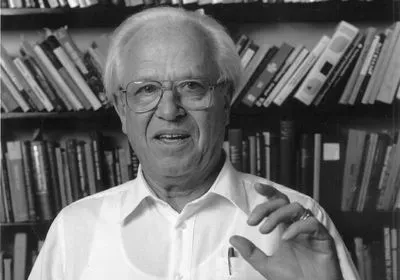Population geneticist Luigi Luca Cavalli-Sforza died August 31 in Belluno, Italy, at age 96. While he originally began research as a bacteriologist, he is best known for his extensive statistical and genetic work on human evolution.
“More than any other human geneticist, Cavalli-Sforza believed in the potential of genes and culture together to trace humanity’s origins,” writes anthropologist John Hawks of the University of Wisconsin-Madison, in a memorial. “In the course of his work, he pioneered new ideas and models that brought together these two distinct areas of science.”
Born in Genoa, Italy, on January 25, 1922, Cavalli-Sforza graduated with a medical degree from the University of Pavia in 1944. He then met statistician and geneticist Ronald Fisher at a conference in Italy and moved in 1948 to the University of Cambridge as an assistant professor to work with him on bacterial genetic variation and statistics.
Between 1951 and 1970, ...













